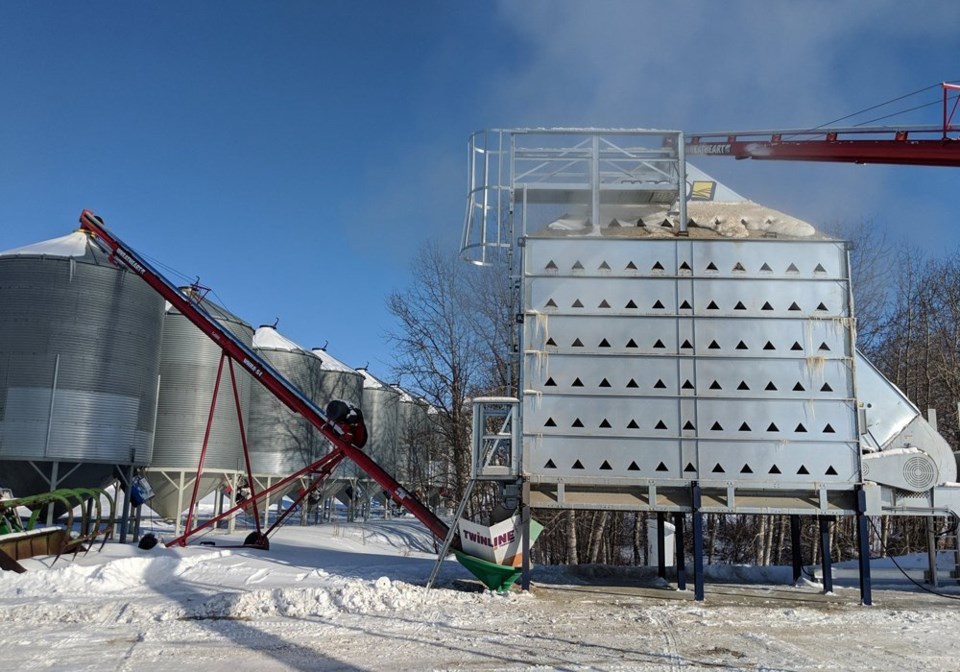WESTERN PRODUCER — Grain Growers of Canada says farmers will not benefit equally from a grain drying rebate program the federal government announced late last year.
The rebate for farmers in Alberta, Saskatchewan, Manitoba and Ontario, the provinces where Ottawa administers the carbon tax, was included in the fall economic statement in mid-December but not widely publicized.
GGC executive director Erin Gowriluk said the association is pleased Ottawa recognized the problem, but the program formula is “a fairly blunt instrument” that offers no opportunity for customization.
“There’s going to be a significant amount of inequity in the way in which these rebates are distributed,” she said in an interview.
Some of the GGC directors ran preliminary numbers and will get between 20 and 30 percent of their total carbon tax back.
“Some will definitely get more and others will get less depending on how the formula relates to their individual operation,” Gowriluk said. “It will depend on commodity. It will depend on where in the country they live, how dependent they may be on grain drying. The rebate for a corn farmer in Ontario will look very different than that of a grain farmer on the Prairies.”
The rebate will be “equal to the eligible farming expenses attributable to backstop jurisdictions in the calendar year when the fuel charge year starts, multiplied by a payment rate, as specified by the minister of finance for the fuel charge year,” says the information included in the fall statement.
The rebates will be taxable income in the year they are claimed.
For this year, the payment rates have been set at $1.47 per $1,000 in eligible expenses. In 2022, that rises to $1.73.
Eligible farming expenses are defined as the “amounts deducted in computing income from farming for tax purposes, excluding any deductions arising from mandatory and optional inventory adjustments and transactions with non-arm’s length parties.”
Todd Lewis, second vice-president at the Canadian Federation of Agriculture and outgoing president of the Agricultural Producers Association of Saskatchewan, said the rebate is short of what producers spend and farmers need more details on how the payment rates were set.
Gowriluk said the program as it is designed acknowledges that the federal government’s price-on-pollution policy doesn’t achieve its objective when applied to fuel use on farms.
“I think by creating this rebate program what they’ve done is essentially acknowledge that farmers have no alternative, especially when it comes to things like grain drying, to use anything but natural gas or propane,” she said. “And so, they’re not going to be able to incentivize a practice change.”
GGC will continue to advocate for a complete exemption from the tax as put forward by Conservative MP Philip Lawrence in a private member’s bill nearly two years ago. Bill C-206 stalled in the Senate when the fall 2021 election was called.
Prince Edward Island senator Diane Griffin introduced Bill S-215 to exempt propane and natural gas used to heat and cool barns also in February 2020. It made it to second reading stage, where it stayed.
Gowriluk said the Liberal government had said its legislation could be more effective than Lawrence’s private member’s bill would be, but it has not.
“We didn’t get it quite right with this one,” she said.
She added the fact this is a two-year program indicates the government genuinely wants to see how it works and get good information before proceeding further.
GGC representatives met with officials from both the finance and agriculture departments last week to discuss their concerns about the program.

